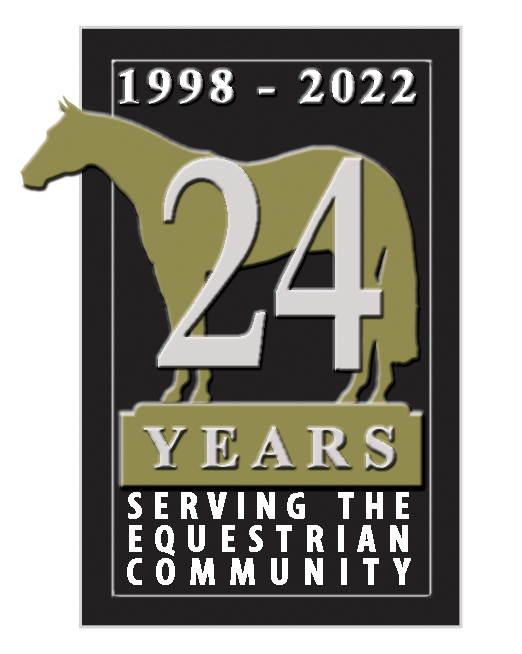Don’t Deworm Horses in the Dark
October 1, 2009Don’t Deworm Horses in the Dark
Fecal egg count tests help identify potential parasite resistance, deworming needs
DULUTH Worried about resistance? Concerned that your parasite control program isn’t working as well as it used to? With questions like these, it can pay to incorporate fecal egg count reduction tests (FECRT) into your deworming program this fall., GA. — Sept. 23, 2009 —
“While FECRTs aren’t a definitive test for resistance, it’s a good start for evaluating what parasite loads your horses are carrying and what deworming products you should be using,” says Hoyt Cheramie, DVM, MS, manager, Equine Veterinary Services for Merial. “Without basic knowledge about the parasites present, horse owners may be deworming in the dark — and perhaps wasting money on products that aren’t appropriate.”
A quantitative fecal egg count test examines the number of eggs in a small sample of manure to help indicate parasite levels within an individual horse or group of horses.1 When performed both before and after parasite control products are used, it can help horse owners and their veterinarians evaluate the product.
“For the best information possible, getting your veterinarian involved should be the first step,” Dr. Cheramie says. “FECRTs can be easily misinterpreted if samples are improperly collected, handled or analyzed. Work with your veterinarian to ensure FECRT analysis and additional tests are properly conducted by a veterinary clinic or by independent, reputable laboratories. Don’t rely on dewormer manufacturers’ labs to perform these diagnostics. Even in the cases where Merial needs to conduct an FECRT, we rely on independent, university-based parasitologists.”
Veterinarians will analyze the results to determine the type of parasites1 and any variability in egg output between horses or between fecal egg count tests if these tests have been performed previously. Veterinarians consider these factors, among others, like the age of the horse, when making deworming recommendations.2
In addition, horse owners shouldn’t expect information on tapeworms as there is no reliable diagnostic test for active tapeworm infection.3
“After reviewing the results, don’t be surprised if your veterinarian recommends a new deworming product or no product at all,” Dr. Cheramie says. “There is well-documented evidence that some entire classes of dewormers may not work against key parasite threats.”4,5,6
For even greater confidence in your parasite control program, look for products that offer a product satisfaction guarantee and manufacturer’s backing, like
ZIMECTERIN® (ivermectin) and ZIMECTERIN Gold (ivermectin/praziquantel), which offer a 100% product satisfaction guarantee and personal support with any product questions or concerns. In addition, ZIMECTERIN Gold treats and controls all major species and stages of small strongyles, including small strongyles resistant to some benzimidazole class compounds.4,7
“Even when using a dewormer that works, the goal of today’s equine parasite control program isn’t to eliminate all worms. The important considerations are reducing parasite transmission, keeping worm burdens below harmful levels and treating clinically affected horses. While not perfect, FECRTs are the best start to shedding some light onto the performance of your current equine deworming program.”
Merial is a world-leading, innovation-driven animal health company, providing a comprehensive range of products to enhance the health, well-being and performance of a wide range of animals. Merial employs approximately 5,400 people and operates in more than 150 countries worldwide. Its 2008 sales were over $2.6 billion. Merial Limited is a joint venture between Merck & Co., Inc. and sanofi-aventis. For more information, please see www.merial.com.
###
Warning: Not for use in humans. Keep this and all drugs out of reach of children. In horses, there have been rare reports of swelling and irritation of the mouth, lips, and tongue following administration of ZIMECTERIN Gold. These reactions have been transitory in nature. Do not use in other animal species as severe adverse reactions, including fatalities in dogs, may result.
1Evans PA and Rood K. Fecal egg count tests improve deworming programs. Utah State University Cooperative Extension. April 2009. Available at: http://extension.usu.edu/files/publications/publication/AG_Equine_2009-01pr.pdf. Accessed June 3, 2009.
2Kaplan RM. These ain’t your father’s parasites: An evidence-based medical approach to equine parasite control. The Practitioner October 2008.
3Reinemeyer C. Update on equine tapeworms presentation notes. Louisiana Veterinary Medical Association Equine Committee: September 21-23, 2003.
4Kaplan RM, et al. Prevalence of anthelmintic resistant cyathostomes on horse farms. JAVMA
2004;225(6);903-910.
5Woods TF, Lane TS, Zeng QY, Courtney CH. Anthelmintic resistance on pleasure horse farms in
north-central Florida. In: Proceedings 42nd Annual Meeting of the AAVP; 1997:88.
6Lyons ET, Tolliver SC, Collins SS. Study (1991 to 2001) of drug-resistant Population b small strongyles in critical tests in horses in Kentucky at the termination of a 40-year investigation. Parasitol Res 2007;101:689-701.
7Based on data provided on the ZIMECTERIN Gold label.
®ZIMECTERIN is a registered trademark of Merial Limited.
ã2009 Merial Limited. Duluth, GA. All rights reserved. EQUIZIM931-R (09/09)

